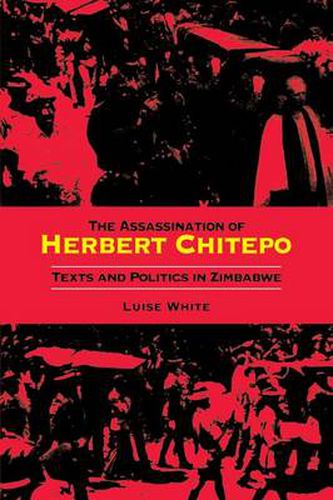Readings Newsletter
Become a Readings Member to make your shopping experience even easier.
Sign in or sign up for free!
You’re not far away from qualifying for FREE standard shipping within Australia
You’ve qualified for FREE standard shipping within Australia
The cart is loading…






On March 18, 1975, Herbert Chitepo, an African nationalist in exile and chairman of the war council that struggled to liberate Zimbabwe from white-ruled Rhodesia, was killed by a car bomb. Since then, there have been four confessions and at least as many accusations about who was responsible. In this book, Luise White does not set out to resolve questions about who was accountable for this horrible murder. Instead, in a style that is as much murder mystery as it is history writing, she uncovers what is at stake in the various confessions and why Chitepo’s assassination continues to incite conflict and controversy in Zimbabwe’s national politics. White casts doubt on official accounts of the murder and addresses how and for whom history is written and how myths and ideas about civic culture were founded in war-torn Zimbabwe. Although the truth about the assassination of Herbert Chitepo may never be known, readers will discover how one man’s murder continues to unsettle Zimbabwe.
$9.00 standard shipping within Australia
FREE standard shipping within Australia for orders over $100.00
Express & International shipping calculated at checkout
On March 18, 1975, Herbert Chitepo, an African nationalist in exile and chairman of the war council that struggled to liberate Zimbabwe from white-ruled Rhodesia, was killed by a car bomb. Since then, there have been four confessions and at least as many accusations about who was responsible. In this book, Luise White does not set out to resolve questions about who was accountable for this horrible murder. Instead, in a style that is as much murder mystery as it is history writing, she uncovers what is at stake in the various confessions and why Chitepo’s assassination continues to incite conflict and controversy in Zimbabwe’s national politics. White casts doubt on official accounts of the murder and addresses how and for whom history is written and how myths and ideas about civic culture were founded in war-torn Zimbabwe. Although the truth about the assassination of Herbert Chitepo may never be known, readers will discover how one man’s murder continues to unsettle Zimbabwe.